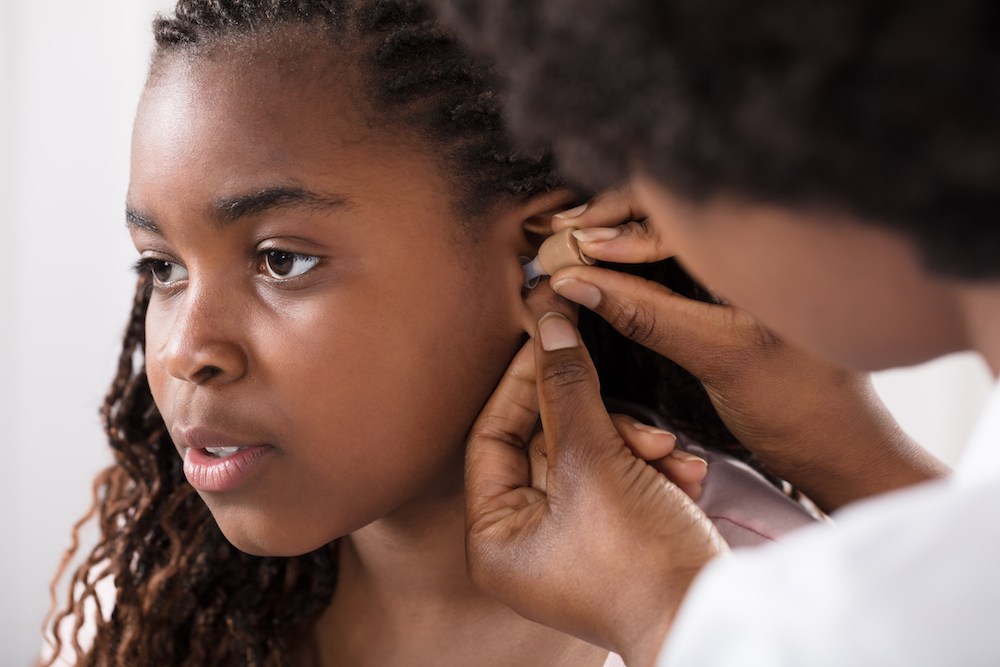Maximizing the Benefits of Your Hearing Aid Fitting
Hearing loss is experienced by many, and although it comes with its unique

By: admin | August 15, 2018
What is generally labeled as an ear infection, is medically known as otitis media or AOM. Ear infections are especially common after a cold or sinus infection and they not only affect children but adults as well. You can even get an ear infection from a bad tooth.
If you have an infection in the middle ear you will most likely have some loss of hearing, but will it go away? To come up with a complete answer can be somewhat complex. Ear infections have a lot of things going on. There is damage that can be caused that you need to understand and also how this damage can affect your hearing.
Basically, otitis media is an infection of the middle ear. Bacteria is the most likely cause, but it might be caused by any type of micro-organism.
Ear infections are defined by where they manifest in the ear. When the infection is in the pinna, or outer ear, or in the front of the eardrum, the condition is otitis externa or swimmer's ear. The term labyrinthitis describes an infection of the cochlea or inner ear.
The space behind the eardrum but in front of the cochlea is called the middle ear. The membranes of the inner ear are vibrated by three very small bones called ossicles which are situated in this area. An infection in this part of the ear tends to be very painful because it puts pressure on the eardrum, usually until it actually breaks. Your inability to hear very well is also because of this pressure. The ear canal can be obstructed by infectious material which will then cause a loss of hearing.
A middle ear infection includes the following symptoms:
For the majority of people, hearing comes back over time. Hearing will come back after the pressure dissipates enabling the ear canal to open back up. The issue will only be resolved when the infection is resolved. There are exceptions, however.
Ear infections affect most people at least once in their life. The issues can become chronic for some people and they will keep having ear infections. Chronic ear infections can result in complications that mean a more considerable and maybe even cause permanent loss of hearing, especially if the issues are left untreated.
Ear infections can sometimes cause conductive hearing loss. When this happens, the sound waves going to the inner ear are not loud enough. The ear has components along the canal which amplify the sound wave so by the time it gets to the tiny hair cells of the inner ear, it is strong enough to trigger a vibration. Sometimes things change along this route and the sound is not effectively amplified. This is known as conductive hearing loss.
Bacteria don't simply sit and behave themselves inside the ear when you have an ear infection. They must eat to live and multiply, so they break down those components that amplify sound waves. The damage is usually done to the tiny little bones and also the eardrum. It doesn't take very much to break down these fragile bones. Once they are gone, they stay gone. That's permanent damage and your hearing won't return on its own. In some cases, surgeons can put in prosthetic bones to fix hearing. The eardrum may have scar tissue once it repairs itself, which will affect its ability to move. Surgery can fix that, also.
If you believe that you might have an ear infection, call a doctor immediately. You shouldn't wait if you want to protect your hearing. If you get chronic ear infections, you shouldn't ignore them. More damage is caused by more serious infections. Finally, take steps to avoid colds, allergies, and sinus infections because that is where ear infections typically start. If you are a smoker, now is the right time to stop, too, because smoking increases your risk of having chronic respiratory issues.
If you are still having trouble hearing after having an ear infection, see a doctor. Other things can cause conductive hearing loss, but you may have some damage. Hearing aids can be very helpful if you have permanent loss of hearing. To get more information about hearing aids, schedule an appointment with a hearing specialist.

Hearing loss is experienced by many, and although it comes with its unique
By: admin | March 31, 2024

Hearing aid repairs are a necessary part of using devices. Hearing aids
By: admin | March 30, 2024

Typically, your body excels at maintaining its own upkeep, including your
By: admin | February 29, 2024
